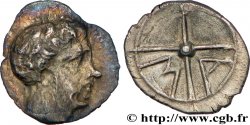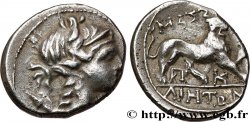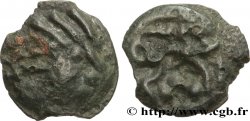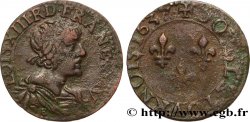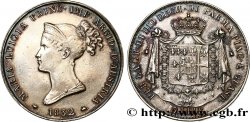Live auction - bga_705378 - MASSALIA - MARSEILLE Hémiobole à la tête de lion, à gauche, du type du trésor d’Auriol
You must signin and be an approved bidder to bid, LOGIN TO BID. Accounts are subject to approval and the approval process takes place within 48 hours. Do not wait until the day a sale closes to register. Clicking on "BID" constitutes acceptance of the terms of use of cgb.fr private live auctions.
Bids must be placed in whole Euro amounts only. The sale will start closing at the time stated on the item description; any bids received at the site after the closing time will not be executed. Transmission times may vary and bids could be rejected if you wait until the last second. For further information check the Live auction FAQ
All winning bids are subject to a 18% buyer’s fee.
All winning bids are subject to a 18% buyer’s fee.
| Estimate : | 1 000 € |
| Price : | 1 150 € |
| Maximum bid : | 1 400 € |
| End of the sale : | 08 March 2022 15:57:02 |
| bidders : | 3 bidders |
Type : Hémiobole à la tête de lion, à gauche, du type du trésor d’Auriol
Date: c. 490-470 AC.
Mint name / Town : Marseille (13)
Metal : silver
Diameter : 9 mm
Orientation dies : 9 h.
Weight : 0,59 g.
Rarity : R3
Coments on the condition:
Magnifique monnaie, frappée sur un flan régulier et relativement large, complet des deux côtés. Frappe particulièrement vigoureuse et excellente conservation avec une agréable patine gris foncé avec une fine irisation
Catalogue references :
Predigree :
Cet exemplaire provient très certainement du trésor d’Auriol découvert en 1867
Obverse
Obverse legend : ANÉPIGRAPHE.
Obverse description : Tête de lion à gauche, la gueule ouverte et la langue pendante.
Reverse
Reverse legend : ANÉPIGRAPHE.
Reverse description : Carré creux irrégulier.
Commentary
Pour ce genre de poids, A. Furtwängler considère ces monnaies comme des hémioboles milésiaques. Ce superbe exemplaire est issu du coin de droit A21, comme l’exemplaire Ta26 (collection Longuet et précédemment collection Changarnier, Monnaies et Médailles 47, 1972, n° 157) et du coin de revers R14 comme les monnaies Ta25 et 26 (le Ta25 étant celui de la collection Delpierre).







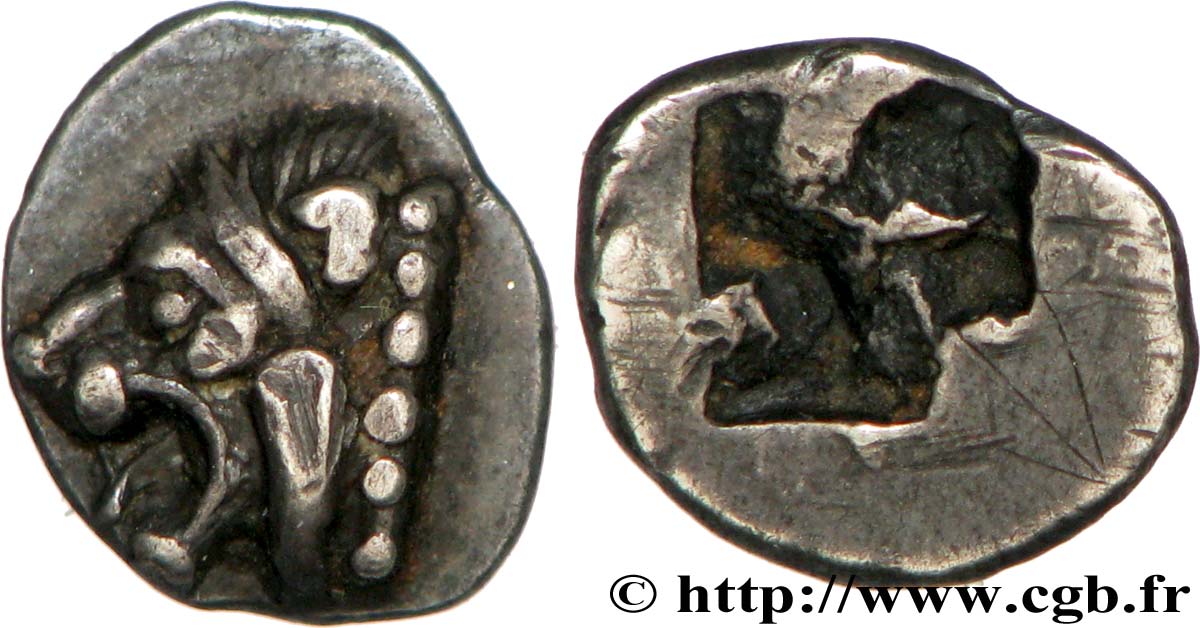
 Report a mistake
Report a mistake Print the page
Print the page Share my selection
Share my selection Ask a question
Ask a question Consign / sell
Consign / sell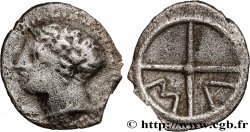
 Full data
Full data

